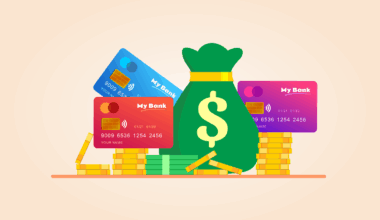Dealing with Competition in a Saturated Event Market
In today’s saturated event market, competition is fiercer than ever. Event marketers face the challenge of standing out among numerous offerings. It’s crucial to differentiate your event, to capture your audience’s attention effectively. One strategy involves understanding the core needs of your target audience. Conduct detailed surveys or focus groups to comprehend what potential attendees truly seek. Tailor your content and event experience accordingly, ensuring it meets those expectations. Additionally, leveraging technology can make a significant difference. Utilize social media platforms, email marketing, and even virtual reality tours to engage potential attendees. Incorporating these technologies not only enhances engagement but also expands your reach. Analyze your competitors as well; review their strengths and weaknesses to identify gaps in their offerings that you can fill. Build a strong brand presence and cultivate a loyal following across various channels. Lastly, remember that post-event follow-ups are key; nurturing relationships will give you an advantage. By implementing these strategies, you can position your event brand for success, even in a saturated market where competition is the norm. Embrace innovation and customer feedback for continuous improvement.
Creating unique experiences is essential for overcoming competition in event marketing. Attendees often favor events that offer memorable, one-of-a-kind experiences. Focusing on the overall atmosphere and attendee engagement can differentiate your events from others. Consider thematic events, interactive sessions, or live performances that can captivate attendees. These unique elements can enhance the perceived value of your event. Incorporate storytelling into your marketing campaigns, allowing your audience to connect emotionally with your brand. Use visuals and testimonials to convey past event successes and guaranteed quality. Collaborate with influencers or industry experts who share similar audiences; this can significantly boost your event’s visibility. Also, don’t overlook the power of partnerships with local businesses for promotions. They can help enhance your marketing reach while sharing resources. Strategic collaborations can create sponsorship opportunities, leading to improved budgets for entertainment and venues. Go beyond traditional marketing methods—embrace digital platforms, create engaging video content, and utilize targeted ads to reach your desired demographic. With a concerted effort toward delivering novel and engaging experiences, you can increase attendees’ loyalty and stand out in the competitive landscape.
Leveraging Brand Authenticity
Brand authenticity plays a pivotal role in overcoming competition in the event sector. Audiences are increasingly drawn to brands that resonate with their values and beliefs. Your event marketing should therefore reflect your authenticity through transparent messaging and honest communication. Share your mission, vision, and behind-the-scenes content with attendees to create a genuine connection. This approach can help build a strong emotional bond with participants, encouraging further loyalty. Highlighting social responsibility initiatives—such as sustainability practices or charitable partnerships—can significantly enhance brand perception. When attendees see that your event aligns with their values, they are more likely to engage and spread the word. Utilize user-generated content by encouraging attendees to share their event experiences, further authenticating your brand. Emphasizing real stories and testimonials can reinforce your brand message and foster trust. Moreover, engage your audience through interactive activities such as polls or interactive sessions where their opinions shape aspects of the event. This fosters a sense of ownership and community. Ultimately, showcasing your brand’s authenticity can set you apart from competitors, position you favorably in the industry, and ultimately lead to greater event success.
Additionally, effective pricing strategies can provide a significant competitive edge in the event marketing landscape. Pricing must reflect the value offered while remaining attractive to potential attendees. Conduct market research to understand the prevailing pricing trends within your target segment. This will help you position your prices aptly against competitors while maximizing perceived value. Consider offering tiered pricing options that cater to different audience segments. Early bird discounts, group packages, and premium experiences can motivate attendees to purchase tickets. Transparency about what attendees receive for each price tier is important; clearly communicate the benefits that come with different packages. Value-added services, such as meals, workshops, and premium access to speakers, can enhance perceived value across pricing tiers. Fluctuations in demand for events can also affect pricing; thus, employing dynamic pricing strategies based on demand dynamics may prove beneficial. During low-demand periods, consider promotional campaigns that create urgency, encouraging attendees to secure their spots. By implementing strategic pricing approaches and ongoing market analysis, you’ll maintain competitive pricing without compromising on quality, thus enhancing your event’s attractiveness and ensuring a robust attendance.
The Role of Marketing Analytics
Marketing analytics is invaluable in refining event marketing strategies within competitive environments. Today’s marketers have access to vast amounts of data that can illuminate audience behavior and preferences. Analyzing this data will allow for data-driven decisions that optimize marketing efforts. Start by tracking event demographics, registration patterns, and social media engagement metrics to understand your audience better. Utilize tools such as Google Analytics and social media insights to evaluate your marketing campaigns’ efficiency. By measuring key performance indicators (KPIs), you can adapt strategies in real-time to enhance effectiveness. Analyzing attendee feedback is crucial as well; post-event surveys offer insights into what worked well and what didn’t. Use sentiment analysis to gauge overall attendee satisfaction. Create a targeted marketing funnel based on collected data to guide potential attendees from awareness to participation. This personalized approach increases conversion rates significantly. You can further utilize segmentation techniques to craft tailored messages catering to various audience groups. Implementing these analytics-based strategies provides valuable intelligence that enables you to stay one step ahead of competitors and proactively address audience needs.
An effective communication strategy can importantly aid in countering competition in event marketing. Your message must resonate with potential attendees while clearly articulating the unique value proposition of your event offerings. Utilize consistent communication across all channels to establish a recognizable brand presence. Create engaging content through various formats—blogs, videos, podcasts, and social media posts that highlight unique aspects of your events. Leverage direct communication with potential attendees by employing email marketing campaigns that nurture interest and encourage registration. Craft compelling subject lines and content tailored to resonate with your audience’s interests, ensuring high open and engagement rates. Further, utilize event reminders and countdowns closer to the date to create excitement and urgency. Engaging attendees prior to the event fosters anticipation and increases participation. Social media is crucial in broadcasting your messaging; regular updates, sneak peeks, and teaser campaigns can substantially enhance audience engagement. Consider creating shareable content that encourages attendees to promote your event within their networks. By developing a robust and cohesive communication strategy, you will effectively penetrate market saturation and reinforce your event’s competitive edge.
Networking Opportunities
Offering networking opportunities at your events can significantly enhance their attractiveness in competitive markets. Attendees often seek valuable connections with like-minded professionals and industry leaders. Design your event structure to facilitate meaningful networking sessions—such as breakout rooms, cocktail hours, or panel discussions. Introduce icebreaker activities that help participants connect more fluidly, enabling organic conversations to blossom among attendees. Encourage speakers or notable industry figures to be accessible, allowing attendees to glean insights and explore collaborative opportunities. Utilize mobile event apps to facilitate networking by enabling attendees to set up personal profiles and connect with others. These tools can encourage conversations offline and build relationships during and after the event. Ensure the environment supports networking; design spaces that promote interaction rather than isolation. Evaluate and gather feedback regarding networking opportunities offered to attendees, and continuously iterate based on insights received. By emphasizing networking as an integral part of your event’s proposition, you can significantly increase perceived value and attendance levels, helping to set your event apart in a competitive landscape. Ultimately, facilitating connections is your ticket to success in saturated markets.
Adapting to industry trends, such as hybrid events or sustainability practices, is crucial in maintaining a competitive advantage. With advancements in technology, many attendees now prefer flexible options that cater to any preferences. Offering hybrid models that allow attendees to choose between in-person or virtual participation expands the potential reach of your events significantly. Emphasizing sustainable practices—like using eco-friendly suppliers—resonates well with an increasingly socially-aware audience. Communicate these initiatives through your marketing channels to highlight your commitment to responsible event practices. Furthermore, utilizing innovative technologies, such as augmented reality, can elevate the attendee experience, providing a cutting-edge feel to your event. Conversely, staying ahead of industry trends ensures that your offerings remain relevant and desirable. Regularly analyze competitors and industry leaders regarding emerging practices and technologies; adopting them can pay off in creating lasting impressions. Positioning yourself as a thought leader within your niche can hugely enhance brand reputation in saturated markets. Surround aspects of innovation with authenticity; being representative of your mission while adapting to change attracts the right audience. By actively evolving your event marketing approach, you differentiate yourself and invite more loyal attendees.


